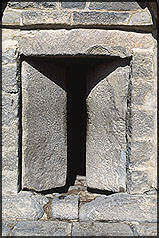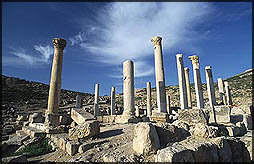 THE GATEWAY TO THE MIDDLE EAST THE GATEWAY TO THE MIDDLE EAST |
Led by a new and dynamic King, the Hashemite Kingdom of Jordan is reforming its economy and opening its markets to foreign investors.

Over a year has passed since the death of the late King Hussein, and His Majesty King Abdullah II has not wasted any time to redefine Jordan as a new player in the global market. He has taken Jordan into a new era by successfully negotiating WTO membership, establishing numerous bilateral trade agreements, building new Qualified Industrial Zones and aggressively promoting the country's potential as a strategic commercial hub.
This has also meant setting up the necessary framework for development - stepping up privatisation efforts, adopting new investment incentives, fighting corruption, facilitating merger activity and establishing partnerships between the public and private sector.
The country's finances are also being strengthened. Recovering from a recent recession, Jordan's GDP rose to US$ 7.8 billion last year, with a per capita GDP of US$1,229. Annual growth has fallen to 1.4 per cent in 1999, but the Minister of Finance has said that he hopes for 3 per cent GDP growth this year. He has been steadily cutting the government deficit from 10.8 per cent of GDP in 1998 to 7.7 per cent in 1999, and this year expects to reach a 7 per cent deficit target.
|
Unfortunately, the Middle East peace process, and the insecurity it generates, has slowed foreign investment and severely crippled the region. Jordan's economy, like all other Arab countries, is dependent on the outcome of peace in the region.
"We are very much influenced by the political economy of the region and the regional context, which prevents us from succeeding fully in attaining our goals and restructuring our economy" admitted the Minister of Foreign Affairs, Abdel-Elah Khatib.

The Hashemite Kingdom of Jordan is a young nation which only achieved independence in 1946, and remains tied to its roots with the West Bank and the Palestinian people. Today about 60% of Jordanians are of Palestinian origin, mostly refugees from wars in 1948 or 1967.
Jordan signed a peace treaty with Israel on October 1994, bringing hope for renewed investment and tourism to the region. Yet the economic boom did not materialise, in part because of continuing conflicts in the region, but also because of the erection of tariff barriers between neighbouring countries and strict international sanctions on Iraq, historically one of Jordan's main trading partners. |

